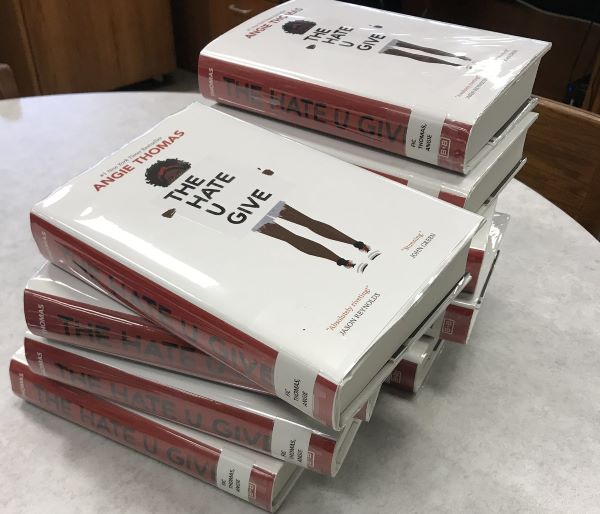~ 6 September 2023 ~
For the past few years, some legislators have been busy banning books and race in education. When government officials remove books from bookstore shelves, libraries, and school reading lists because they object to the book’s content, ideas, or themes, it is censorship. The same may be said of those who target the teaching of race, racism, discrimination, and slavery, as well as a host of other topics they label as “controversial”. The bans are a violation of the First Amendment as they deprive people of the right to receive information and ideas, and it stems from the fact that reading certain books and learning about race, challenge established narratives about American history and social standards, and some government officials, organizations, and private individuals are not comfortable with that.
Thousands of books have been challenged. Previously, book challenges were discussed between the parents, community stakeholders, teachers, and school administrators. Today, local groups receive support from advocacy organizations who nationalize the efforts focused on particular subjects – or to push a certain agenda. These efforts have led to legislative measures passed in 29 states aimed at prohibiting teaching race and inequality in the classroom and led to many book removals. The Hate U Give by Angie Thomas has been among the most “challenged” books on this subject.
“Lacks Educational Value”
According to Florida Gov. Ron DeSantis, AP African American history “lacks educational value” as part of the US educational curriculum, so he rejected the course. Really? This restrictive approach to teaching about race and American history undermines student’s freedom to read, learn, and think. But the more direct issue is that young people are learning to think critically, to ask critical questions about our society. Banning books and restricting access to content will not change that… it will only lead them to ask more questions.
The importance of history is invaluable. Most of the politicians in America have degrees in History, Political Science, or Law degrees – all history-based. However, in some states, Black history is very filtered. Slavery is a fundamental part of US history. So is racism, albeit the worst part, but it is still there. Banning books that mention the “Little Rock Nine”, Jim Crow, Medgar Evers, Emmett Till, Brown vs. The Board of Education, or the atrocities committed by the Klan, is a delusion.
If educators were allowed to teach the reality of oppression throughout history it would upset the dichotomy. However, preventing it from being taught in classrooms or banning books from being read on the topic will not erase or change history. It won’t even keep people from reading them, anyway, they can get their hands on them. In fact, banning books will likely make the same books more popular.
Critical Race Theory
The murder of George Floyd and other unarmed Black Americans by law enforcement led to widespread protests against police brutality and systemic racism. The public conversation led teachers to talk about racism with students in the classroom. However, teaching race in school has also been a target of government officials and critical race theory (CRT) has been at the center of prohibited topics.
The concept is more than 40 years old. At its core is the idea that race is a social construct and that racism is not purely the product of individual bias or prejudice. It suggests that racism is embedded in US social institutions (criminal justice, education, labor and housing markets, and healthcare) via laws, regulations, policies, and procedures that lead to differential outcomes by race.
A good example of how racism and ethnicity are embedded in institutions dates back to the 1930s when government officials literally drew lines around neighborhoods that they considered to be poor financial risks, based solely on their racial demographic. As a result, the banks refused to offer mortgages to Black people in the targeted areas.
CRT is not the idea that all white people are racist, or that they should be rebuked for being oppressors. Neither does it classify all Black people as utterly oppressed victims.
At least 44 out of 50 state legislatures in the US have proposed anti-critical race theory laws. While some of them have been vetoed, others are still moving through the legislative process. As many as 18 states have enacted laws prohibiting CRT from being taught in the classroom. Since the introduction of these laws, many students have found pages, even entire sections, missing in their textbooks.
North Dakota passed a law that prohibits teaching CRT in schools. The law details that when a teacher talks about racism, they may only describe it as a product of an individual’s personal bias or prejudice. Under this law, the entire discussion of slavery would be reduced to “the slaveholders were racist.” There would be no discussion of the Atlantic Slave Trade, or the Transatlantic Slave Trade Triangle because it would suggest the systemic and institutionalized slavery – that our country participated in – which in North Dakota would be against the law to teach.
It’s History
But banning teachers from mentioning race and racism in the classroom is a horrible idea. Altering what history we teach, or revising it because it might make people uncomfortable, is ridiculous. It’s history. And making a law that prohibits teaching race only goes to validate the theory that racism is embedded in the law, leading to a chicken or egg conundrum.
The problem is that many Americans are not able to separate their individual identity as an American, from the social institutions that govern them. They see themselves as the system. Therefore they view saying that social institutions are embedded with racism, as the same as calling them racist.
Perhaps parents are worried that their students might learn something they don’t have the ability to address. South Carolina proposed a law that prohibits teachers from discussing any topic that creates “discomfort, guilt, or anguish”, including the Holocaust. But what book that looks honestly at history does not risk causing someone anguish or discomfort? As an atrocity crimes expert, every book in my field has the potential to cause me some discomfort… and if it didn’t, I’d probably need to check my pulse.
It’s history. Read the books. Teach it as it happened. The lesson is to learn from it and not repeat it.
With gratitude… Lara
Photo Credit: The Hate U Give by cathyjonelson. Licensed under CC By NC-SA 2.0
#thinkingoutloud #tol #larakajs #banningbooks #race #racism #education #FirstAmendment #criticalracetheory

